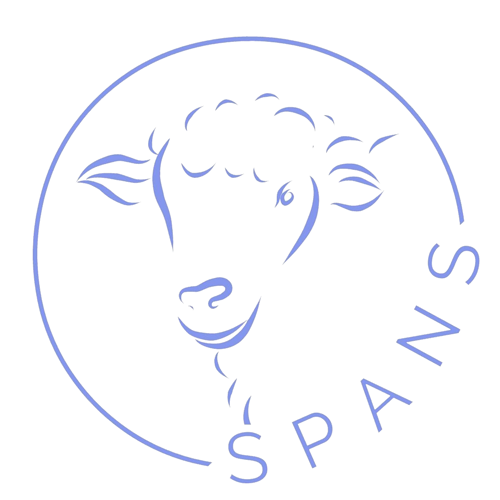What is maedi visna?
How can I tell if my flock has the virus?
How can I take part in the survey?
What are the options for a virus free flock?
Maedi visna virus (MVV)
Causes a slow wasting disease that is eventually fatal. There is no cure or vaccine.
Major signs of disease are seen in the lungs (ovine progressive pneumonia) and in the udder, as a chronic mastitis reducing milk production (hard bag)
The virus spreads through colostrum, and especially through prolonged contact (respiratory secretions), so it spreads easily in winter when sheep are in the barn
Effects in the flock include early culling of less productive ewes, lower lamb weights and lower lamb survival
Effects are usually seen in older animals (over about 4 years), but the virus can be transmitted to lambs or young ewes and rams and the disease is slowly progressive
Detection
Blood samples taken by a veterinarian are sent for analysis to a veterinary laboratory in Ontario
The test has high sensitivity and specificity (few false positive or false negative results) and can detect the virus in animals over 6 months of age
This survey
Will cover much of the cost of sample analysis
Up to 50 animals per flock can be tested for a sample analysis cost of $2/sample. Regular cost through the Pathology Laboratory at present is $15/sample plus handling and shipping
The cost of the veterinarian’s visit to take the samples cannot be included
More than 50 animals could also be included, but the cost per sample for additional animals would be at the full price
Will show what percentage of the sampled farms are MVV positive, and help individual producers come up with a strategy to combat the virus if it is present in their flocks
Can MVV be controlled?
Yes, there are options:
All MVV positive animals can be culled and the flock tested again every 4-8 months
MVV positive animals can be kept apart from the rest of the flock (separate barn, or subdivided barn space)
Lambs from valuable animals can be snatched at birth and raised on artificial colostrum and milk replacer
Lambs can be raised normally by infected ewes, separated after weaning, and tested at 6 months
Ontario and Quebec both have MVV monitoring programs. The Ontario Maedi Visna Flock Status Program is available at www.ontariosheep.org, and has a lot of useful information
We are looking for 25 producers to participate
For small flocks (less than 50) we can sample all animals over 6 months.
For larger flocks you can select older animals (more likely to be infected) and any in poor condition, or select a random sample of animals of any age over 6 months
If you are interested
Contact Cathy Vallis at c.vallis@ns.sympatico.ca for more details and to register.
All data will be kept confidential, and only released in summary form: percentage of flocks infected, sheep infected per flock, and age breakdown if available.
